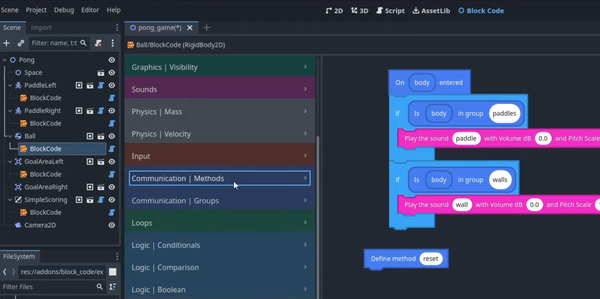17 Open-source Free Home Automation Systems
Table of Content
What is Home Automation and Smart home?
Smart Home is a trending term right now. It merges our home with technologies for easier monitoring, control and automation. In short, it makes our home more smart, easier to manage and control.
A smart home is equipped with a central system that acts like a brain to monitor devices and appliances, devices and sensors, control peripherals like lights, air conditioning, and automate certain tasks like dimming the light while watching a movie.
It's all about connecting the living space with internet-connected smart devices like smart lights, smart plugs, and smart locks.

Benefits of smart homes
- Better power consumption
- Increase comfort
- Improve security
- Control your home through mobile or desktop
- Cost-effective for large homes
- Automate routine tasks
Smart Home and IoT?
Smart Home itself is a part of the IoT revolution. It is also still growing industry same as IoT "Internet of Things".
Commercial VS Open source?
When it comes to converting your home to a smart one, you will face two options: commercial systems or open source. If you have a technical background and like to build your home automation yourself open source is your answer.
For non-technical users, They can find a local company that supports open-source home automation solution which will be cost-effective.
Open-source systems are often backed by a large community of users, developers and engineers, which ensure better support than many commercial systems. Developers will keep the system up-to-date packed with plugins, modules and of-course tutorials.
About this list
We have created this list to help technical and non-technical users choose and build their own smart house, as they can choose between many open source free home automation.
Open-source home automation systems
1- Home Assistant
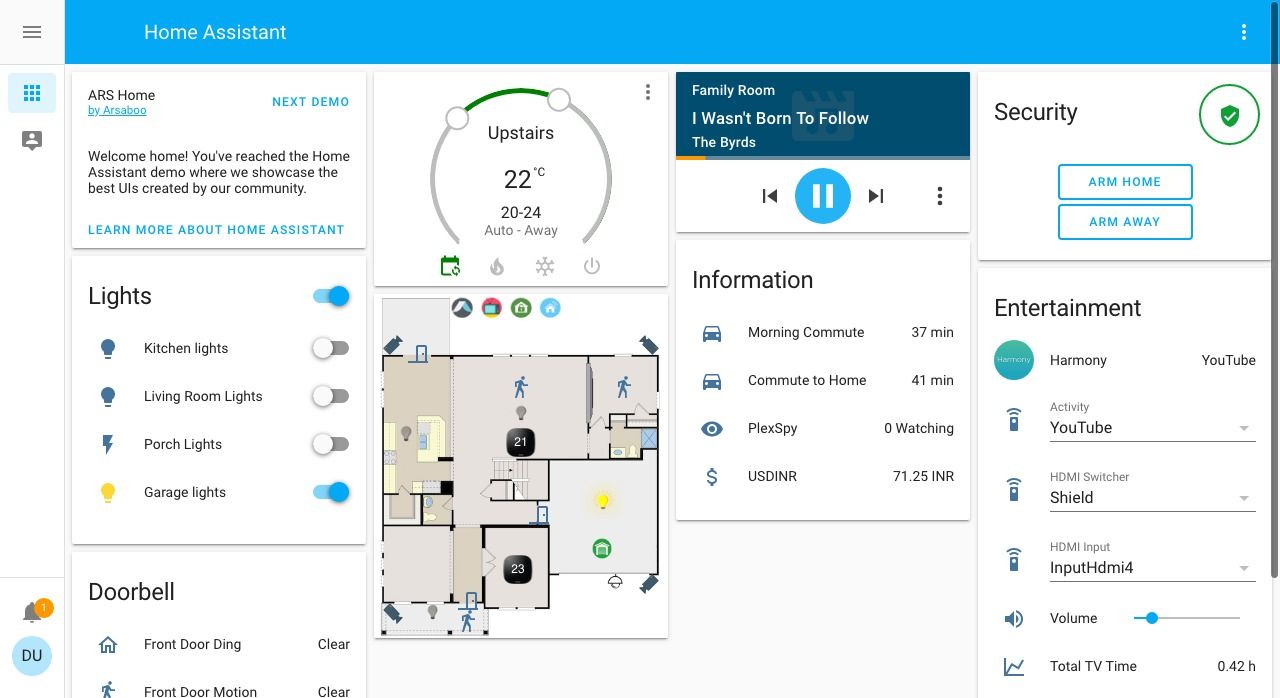
Home Assistant is an open-source community-powered home automation system. It can run on a Raspberry PI or any local server. It has a rich library of connected devices, supported services, sensors, camera and smart car services.
Home Assistants provides a vast and seamless integration with Amazon Alexa, Google Assistant, and the open-source voice assistant Mycroft.io.
With Home Assistant there are 1400+ supported services, and devices. You can easily browse them in the Integrations Library as they are classified under dozens of categories featuring: VoiceUI, Alarm, Automation, Car, Energy, Sensors, Health, Image processing, Multimedia and media players.
Here is a beginner's guide for Home Assistant
2- OpenHAB
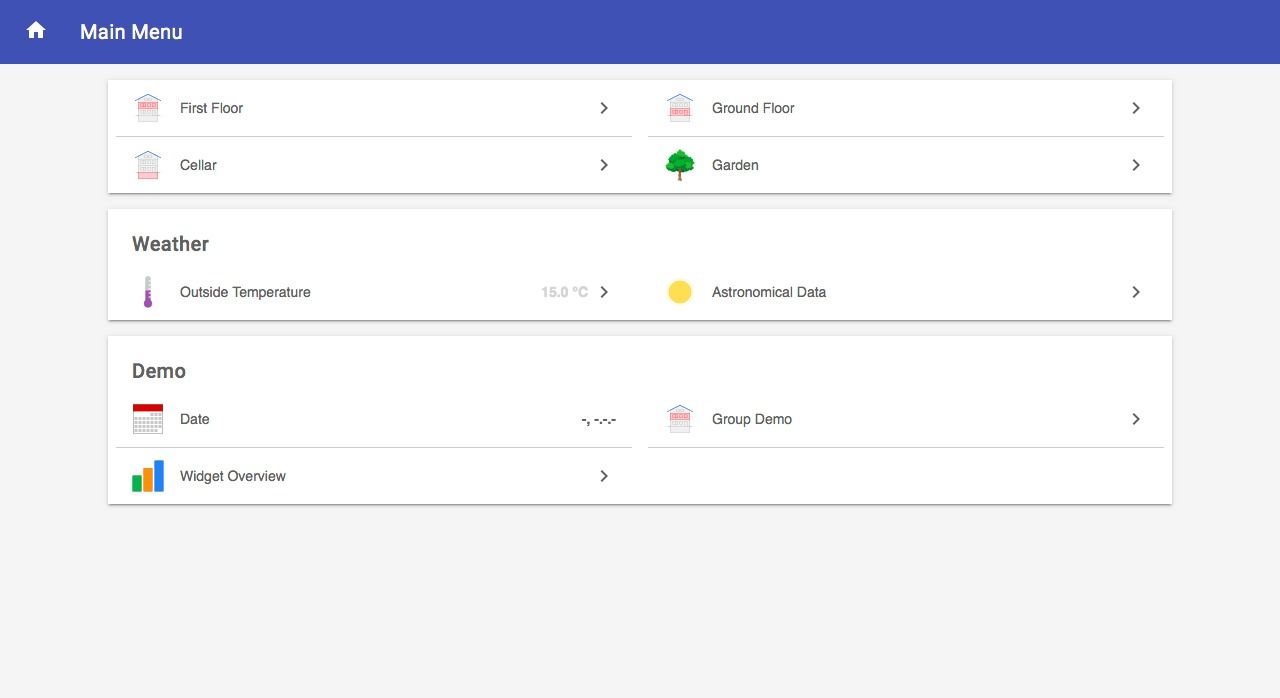
OpenHAB is a longstanding open-source home automation system that comes also with a powerful supporting community. OpenHAB has a plugins-ready architecture which helps developers to add new devices or integrate new services. It also has a developer-friendly REST-API, custom design with time and event-based triggers, notification service, and VoiceUI-powered control.
OpenHAB runs on Linux, Windows and macOS, but it also can run on Raspberry PI, Pine64 and Docker. It offers mobile apps for Android-based devices and iOS app for iPhone and iPad.
With OpenHAB, the user does not require cloud to run if the user requires a restricted system to protect his privacy, but its developers ensure its a cloud-friendly system if the user requires. In short, OpenHAB can support Google Assistant, Amazon Alexa, IFTTT, and Apple HomeKit. To make OpenHAB ready for the cloud OpenHAB offers a cloud version that can be hosted on their service or the user can host it on his server.
3- Calaos
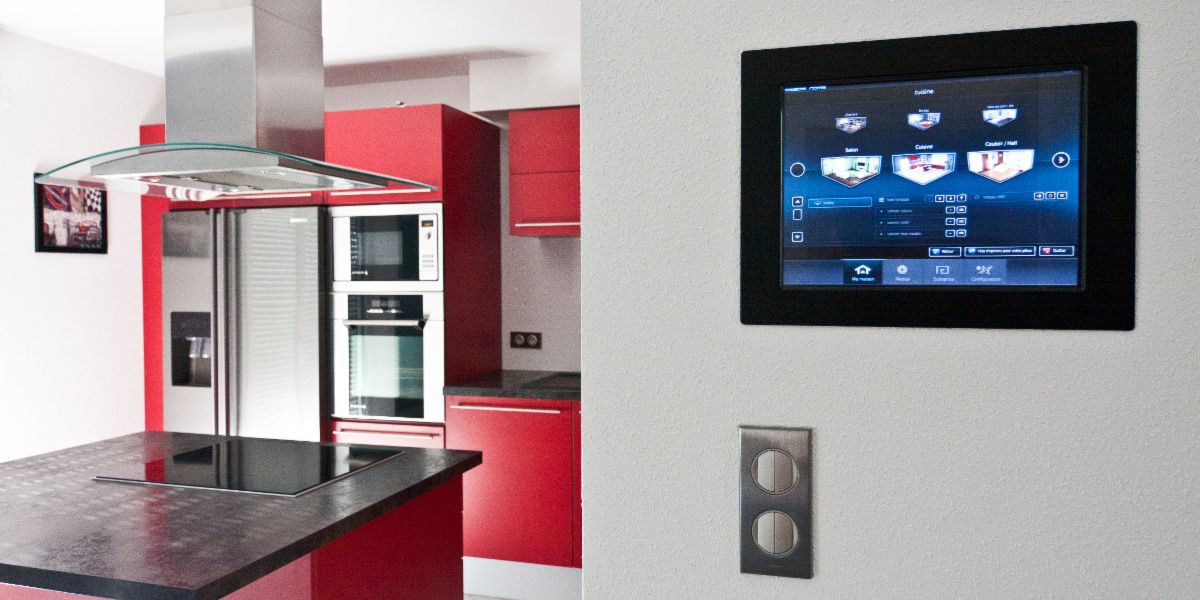
Calaos is yet another open-source home automation system, Its originally developed by a french company which generously released the code under GPLv3 soon as the company closed in 2013.
Calaos is built on different layers; a server, a touch screen terminal, a web application, an installer to configure Calaos, and two mobile apps for iOS and Android devices.
It offers a custom Linux-based distribution with everything installed and pre-configured.
Calaos supports Raspberry Pi, Zodianet's ZiBASE, Cubieboard, Squeezebox and the current active community is working to add support for devices.
Highlights
- Touch screen support
- Android and iOS devices
4- HomeGenie
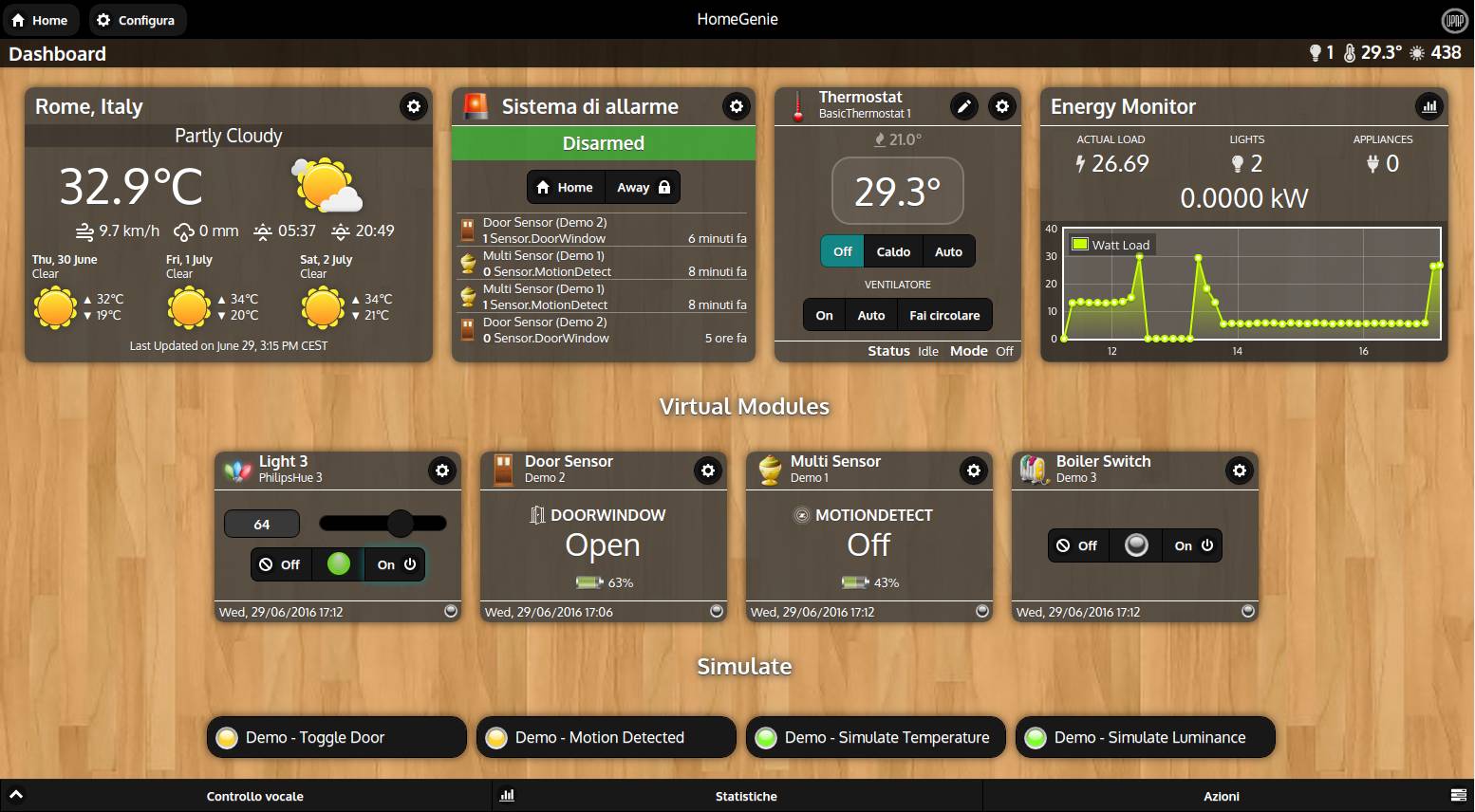
HomeGenie is an open-source server for home automation, it's built to manage, control, monitor and automated internet-connected devices (smart devices). It provides seamless integration with many devices, services as well as supports many protocols and technologies like IR/RF Control and UPnP/DLNA.
HomeGenie can be installed on Windows, Linux and macOS. It's fairly easy to install, configure and manage even for novice users.
Highlights
- Developer-friendly API
- Built-in program editor
- Statistics
- Widget editor
- IR/RF Control
- UPnP/ DLNA control
- Supports Linux, Windows and macOS
5- Domoticz
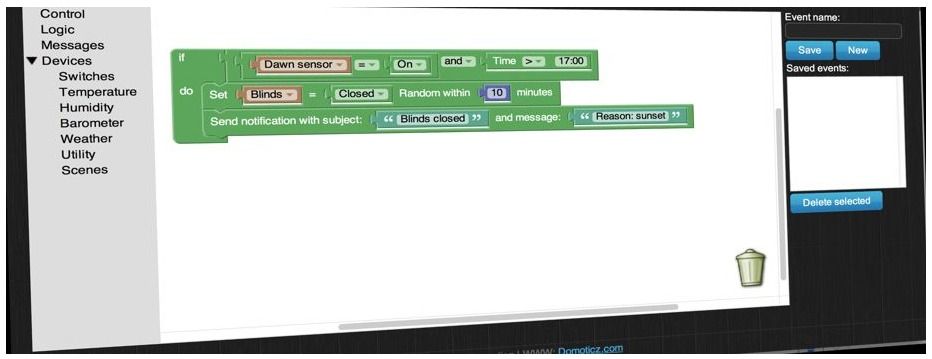
Domoticz is a simple open-source home automation system. It is built to support multiple platforms like Windows, Linux and ARM-based SBC "Single Board Computers" like Raspberry Pi. It provides iPhone / Android push notifications, Customizable simple UI, logging system, simple interface to add and manage new devices.
Domoticz offers a Blockly-based event manager which is an easy way to manage events and create automated timely events.
6- AGO-man
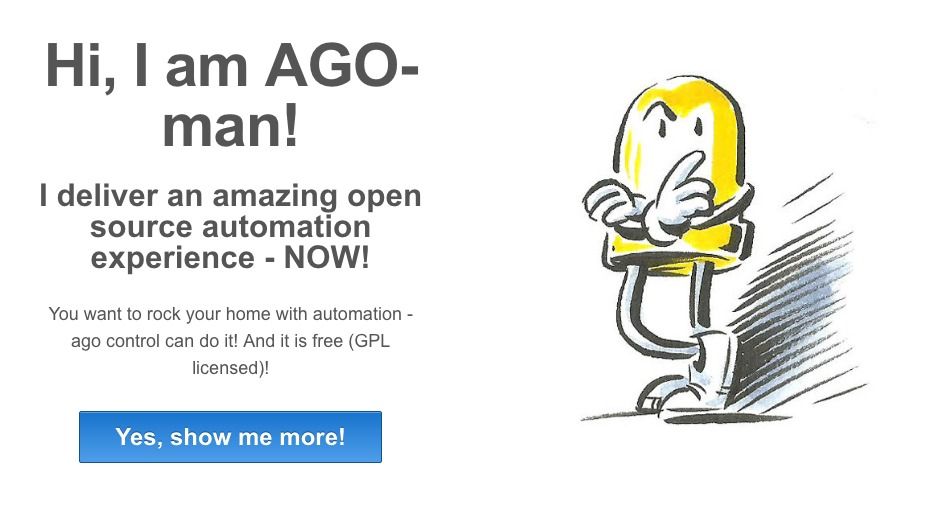
AGO-man is a GPLv3 license home automation system which built for Raspberry Pi and embedded systems. It also offers a bridge-communication with other smart home systems like LinuxMCE.
AGO-man supports many smart and multimedia devices like Z-Wave, 1wire, KNX/EIB, MySensors, Chromoflex USP3, Onkyo AV Receivers, and a many more.
Highlights
- Easy to install
- Supports many devices
- Simple blocks-based dashboard
- Blockly based event handling
- Criteria based event handling
- Scenario editor
- Android application
- Statistics
- Command-line logging
7- ioBroker
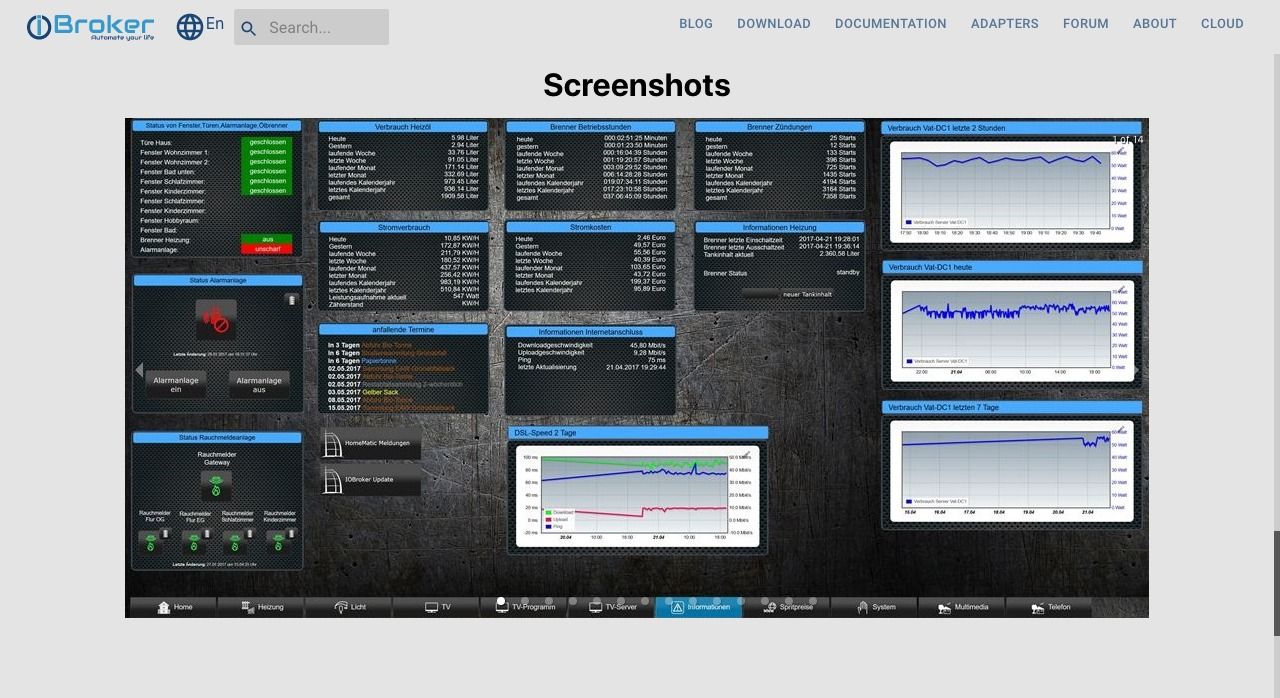
ioBroker is an open-source automation platform written with NodeJS and runs on Windows, Linux, macOS and SBC "Single Board Computers" like Raspberry Pi. It's a complete platform for IoT "Internet of Things" which supports adding, configuring and managing devices with ease.
ioBroker has hundreds of adaptors that resemble services, devices, other platforms, sensors, security systems and protocols.
8- OpenNetHome
OpenNetHome is an open-source hardware/ software system for home automation. It runs on Windows, macOS and Linux systems. It also can be installed on Raspberry Pi. It offers a web-based panel to control, manage, monitor and automate smart home functions with ease.
Learn more about OpenNetHome in this video
9-piDome
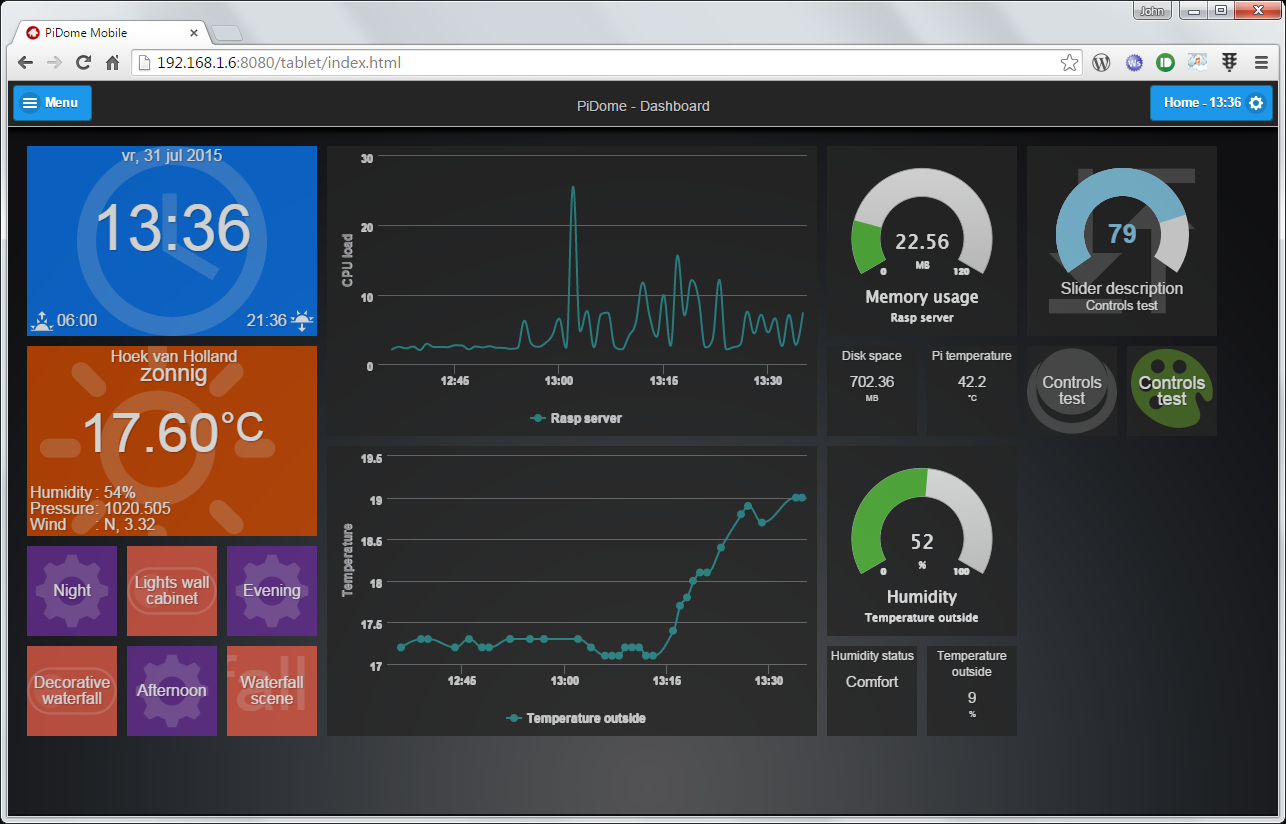
piDome is a RaspberryPi-powered home automation platform. It aims to provide an easy-to-use system for non-technical people. piDone supports MySensors, RFXCOM, KODI multimedia system. It offers a server which as we mentioned RaspberryPi-powered and clients for different systems.
With piDome the user can create and customize his dashboard, use monitors with different resolutions, and run the piDome clients on Windows, Android and macOS.
10-Gladys
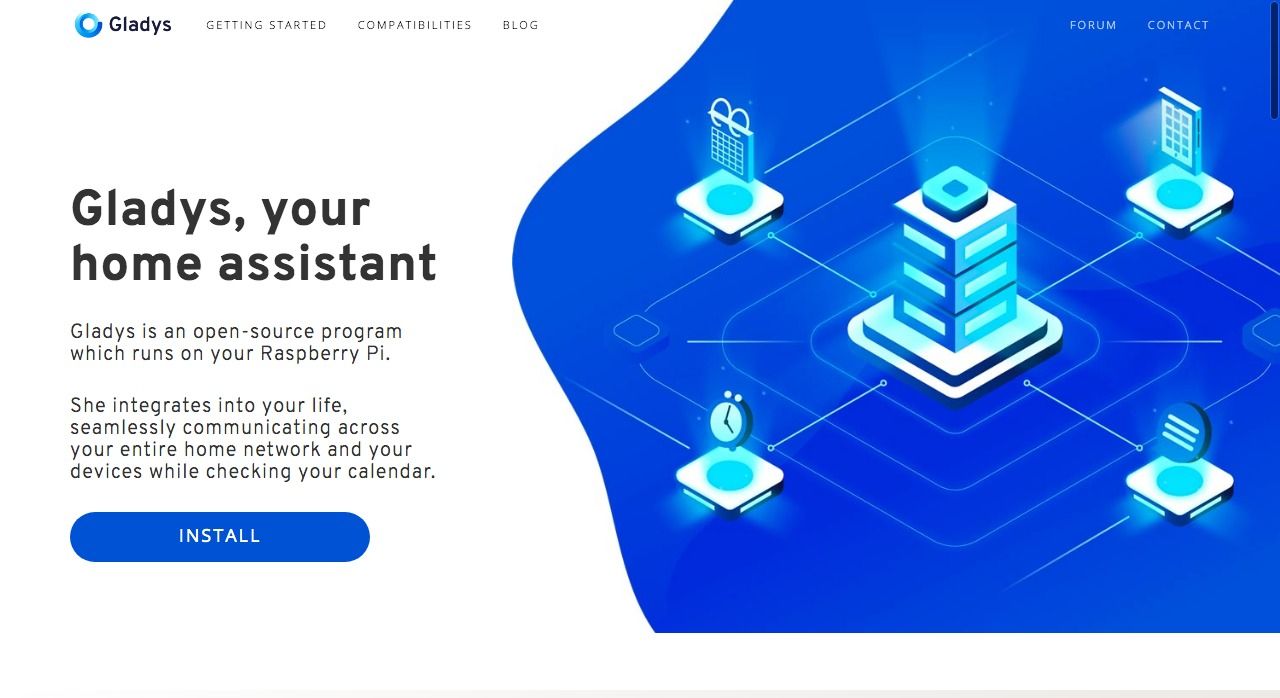
Gladys is lightweight home automation written with NodeJS which runs on Windows, Linux, macOS and Raspberry Pi. Gladys3 is current stable version, but it's not compatible with Raspberry Pi. Gladys4 Alpha is currently in the testing phase.
Gladys is a single man's army project so far, but it starts to get the attention of developers and hopefully, it'll get more community support soon.
11- Pimatic
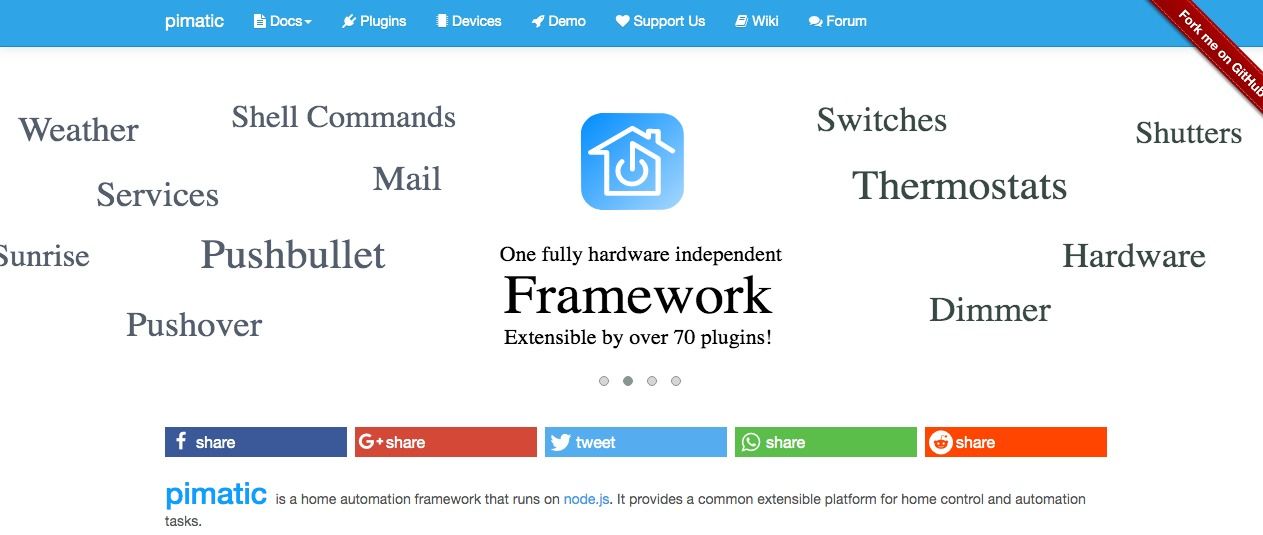
Pimatic is another NodeJS built server and web application system for the smart home. It comes with plugins-ready architecture that allows developers to add devices, services and protocols.
12- MyController
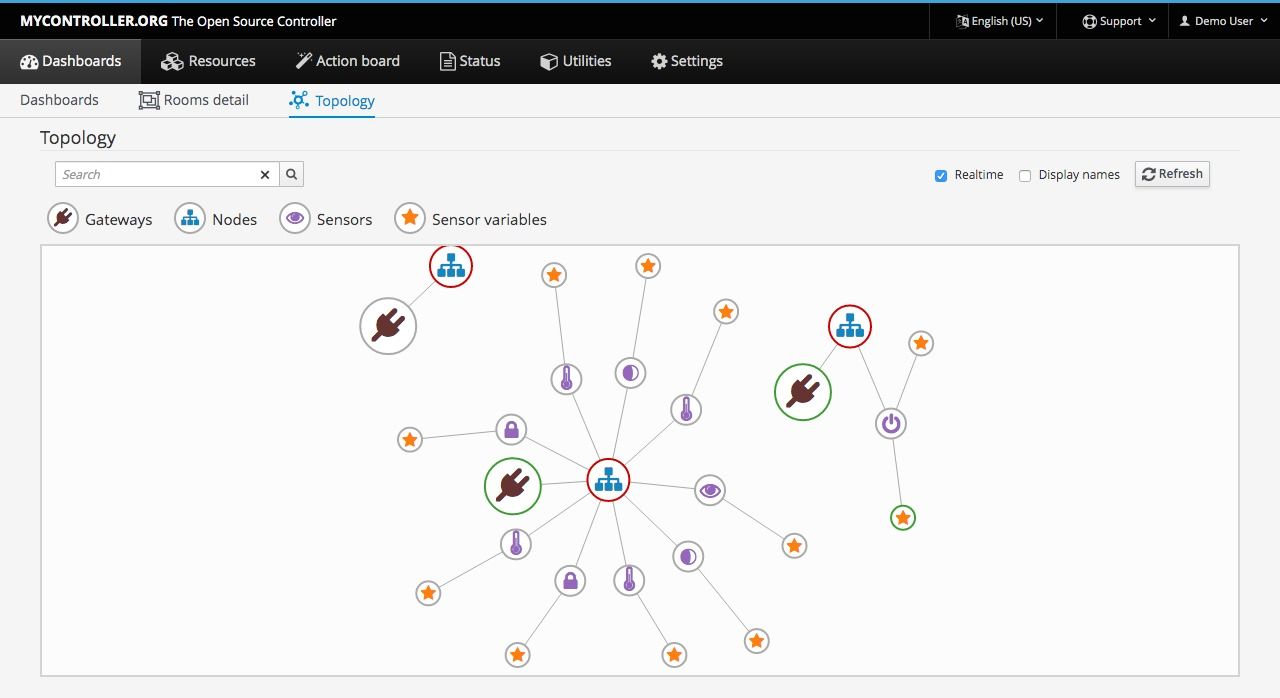
MyController is open-source home automation and IoT platform. It's originally started to support MySensors project. It's designed to run on a machine with limited hardware requirements. As It's built with Java it runs on Windows, Linux, macOS and SBC "Single board computers" including Raspberry Pi, Pine64, Rock64, Orange Pi.
MyController supports many networks, gateways, protocols and devices. It's the most compatible home automation system with MySensors in this list.
Highlights
- Out-of-box support for MySensors
- Cross-platform
- Minimal hardware requirements
- Developer-friendly
13- MajorDoMo
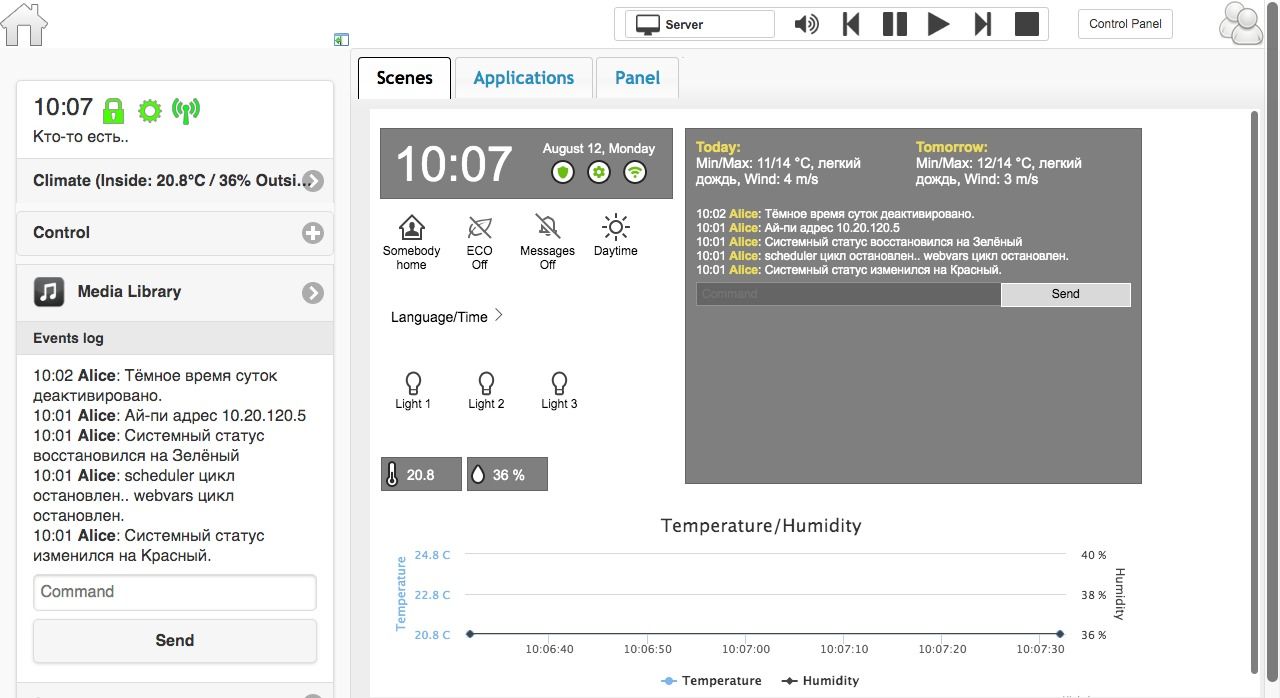
MajorDoMo is an emerging multi-protocol supported open-source home automation platform. It runs on Windows and Linux machines. It's created by a group of developers from Russia, so it's still expanding its territories to the international market with better English support.
The user interface is a web-based interface easy-to-use for non-technical users. The user can add rooms, devices, configure automated events, integrate web applications and cloud-based services.
14- Eclipse SmartHome
Eclipse SmartHome is open-source home automation and IoT framework from the Eclipse Foundation. It supports many embedded devices such as Raspberry Pi, BeagleBone, Intel Edison, Orange Pi, Rock64 and more. It has been used by many companies around the world.
15- FHEM
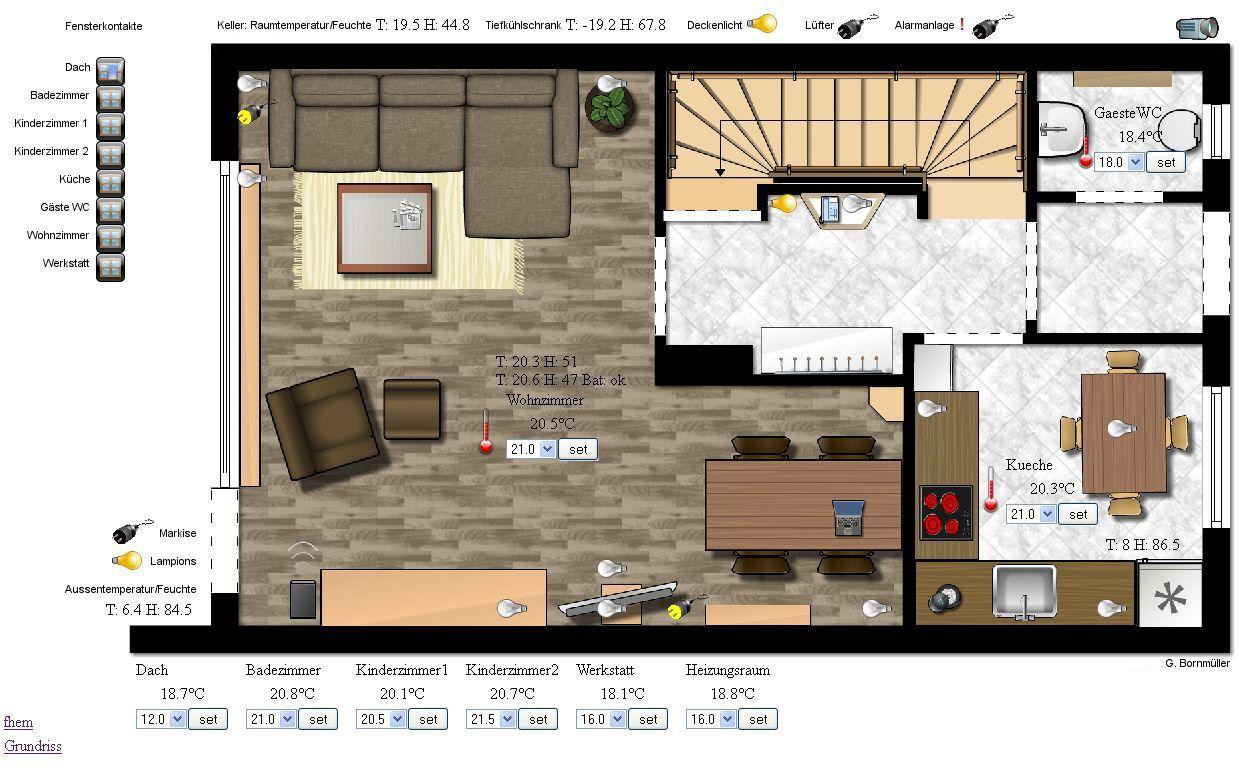
FHEM is a perl-based server for home automation. It works on Windows, Linux and macOS. It can be controlled through a web-based interface with phone or desktop browsers. FHEM supports IoT remote interfaces and many protocols. It also supports many devices out-of-box.
16- LinuxMCE
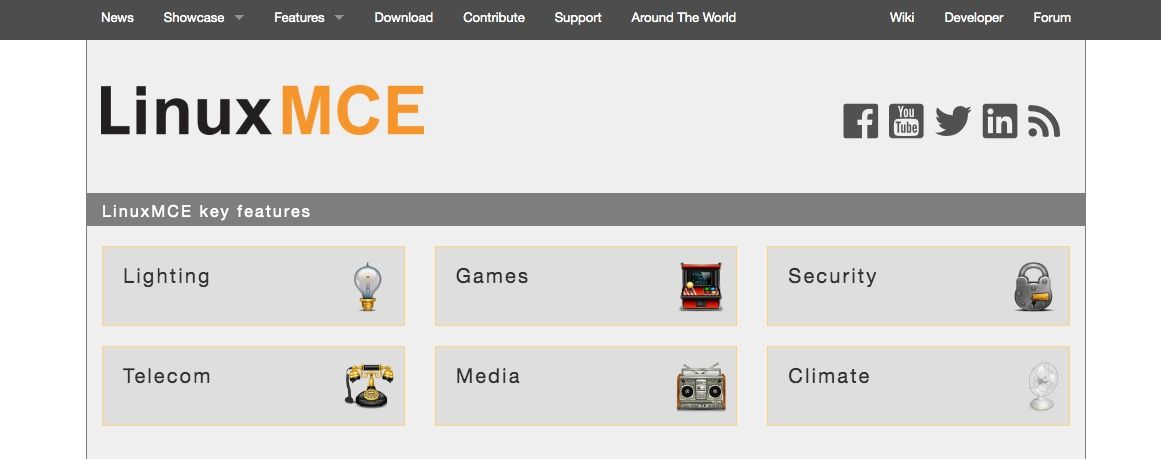
LinuxMCE is a complete home automation suite built as a Linux distribution. It comes with pre-built and pre-configured server and UI system that allows easy integration with many devices services with the support of many smart devices protocols like VoIP, QoS, HDMI and more.
17- MisterHouse
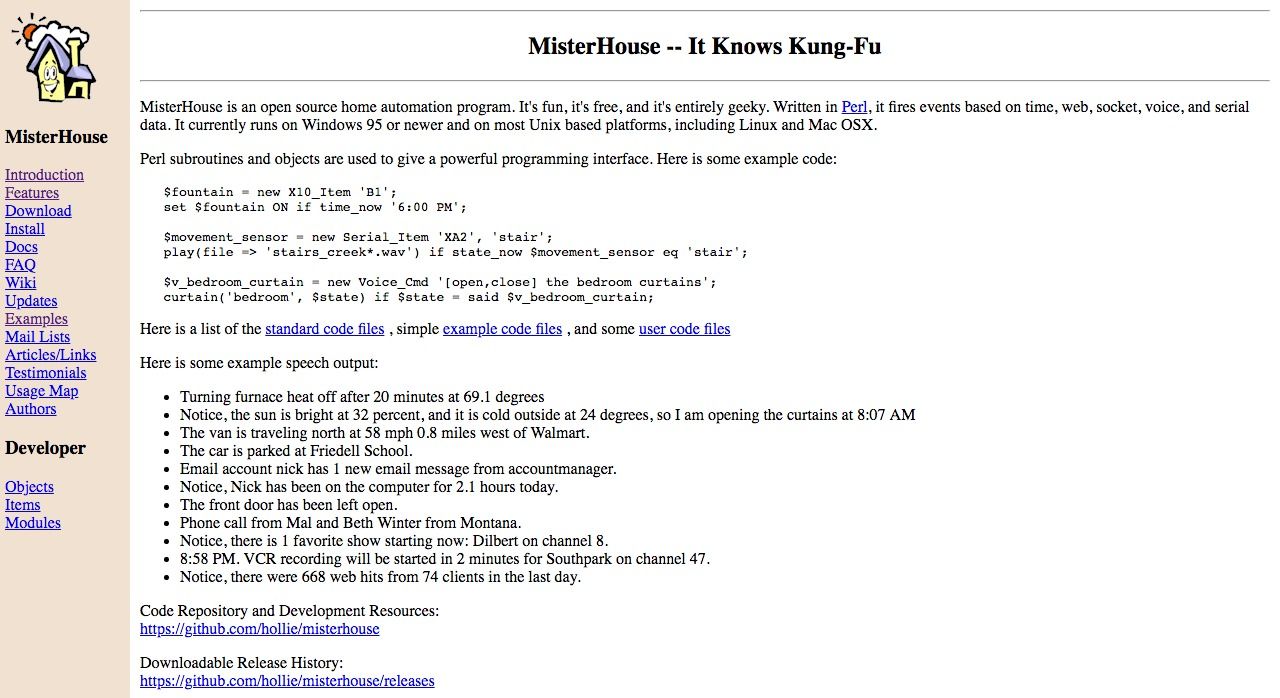
MisterHouse is our second perl-based home automation server. It runs on Windows, Linux and macOS. It also runs on Raspberry Pi, Orange Pi and Rock64.
Conclusion
We recommend using community-powered systems for non-technical users if they are looking for long-term support. Home automation is still new trending technology, so we expect to expand this evergreen list in the future so stay tuned.






